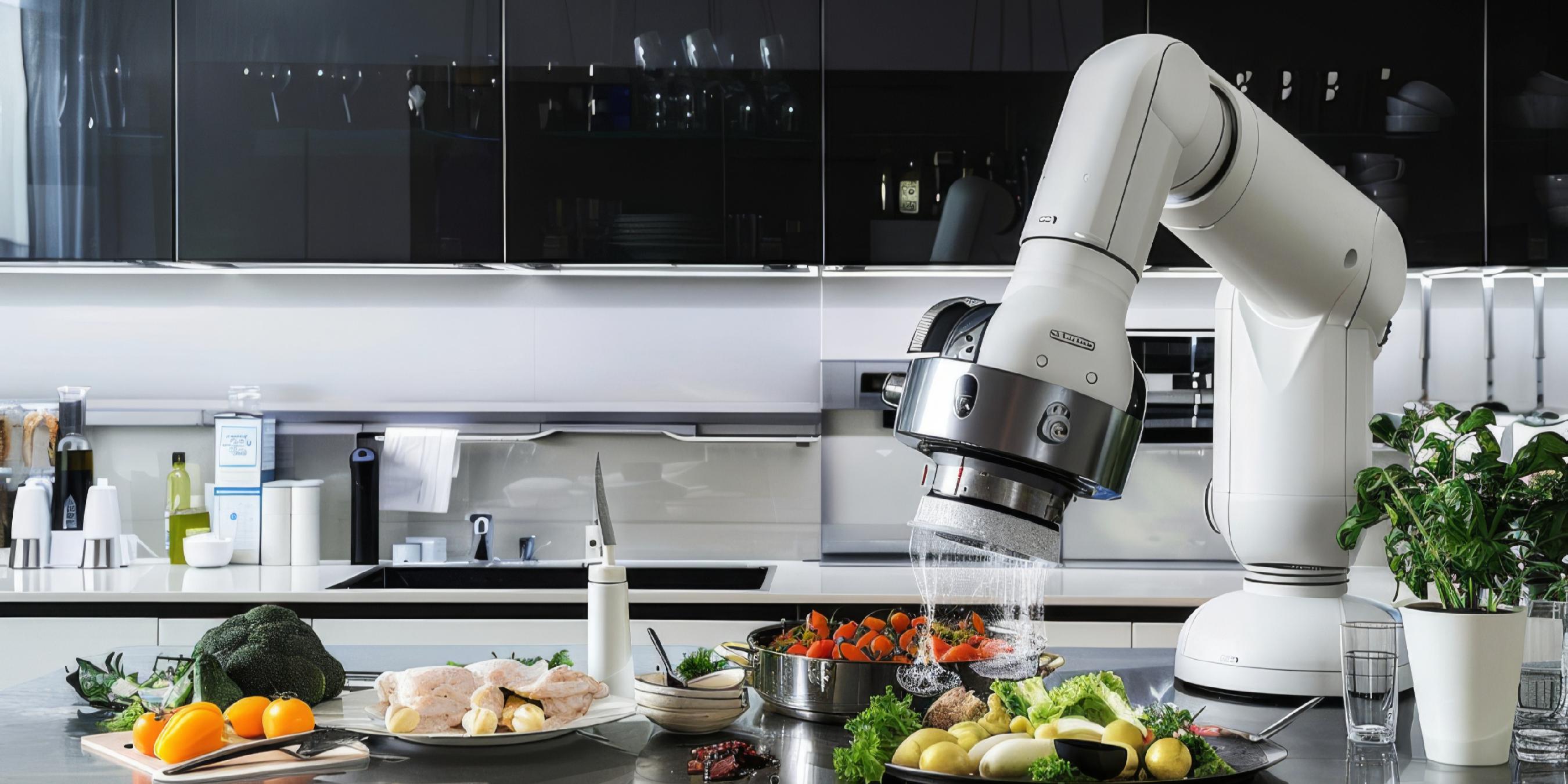Kitchen Revolution: How Wok-Flipping Robots Are Reshaping the Gastronomic Memories of Modern Man

01 Algorithmic reconstruction of the culinary philosophy;
In the lab of a tech company in Wuhan, a robotic arm preciselyics the wrist movements of a three-Michelin-starred chef, a temperature sensor with a precision of 0.1 millimeter monitors the real-time temperature changes the pot, and an AI algorithm automatically adjusts the heat according to the moisture content of the ingredients. This seemingly sci-fi scene is precisely the cutting-edge innovation practice in field of smart kitchenware - the kitchen revolution brought by the stir-fry robot is changing the thousands of years of human cooking tradition at an unimaginable speed
The vague quantifiers such as "appropriate amount" and "a little bit" that traditional cooking relies on are completelyized in the algorithm world of the stir-fry robot. The latest model of Midea's food processor is equipped with a taste map system that decomposes the classic recipes the eight major cuisines into 128 quantitative parameters, from the rate of oil molecule penetration to the critical value of the Maillard reaction. Each variable has been and verified thousands of times in the laboratory. Siemens' intelligent stove's dynamic fire control system can recognize the degree of charring on the surface of the ingredients within .03 seconds, and through gradient temperature control technology, it achieves a level of precision in heat control that is difficult for human chefs to reach.
These technological innovations are reshaping the rules of the game in the restaurant industry. After introducing a stir-fry robot, a chain restaurant in Guangzhou saw a 40% increase in the speed of food delivery, and the standard deviation of the dishes decreased from 15% in manual cooking to 28%, with the store's human efficiency ratio reaching 3.2 times that of the traditional model. The latest review criteria of the Michelin Guide have added an "elligent Cooking Innovation Award," marking the formal recognition of the high-end restaurant industry for the technological revolution.
02 The emotional temperature of mechanical arm stirring
At a robot-themed restaurant in Tokyo's Ginza district, 68 percent of customers surveyed they find the "mechanical sushi chef" more reassuring than human chefs. That trust stems from a retrievable system for machine cooking — each dish can be precisely for 200-plus safety data points, such as the acid value of the cooking oil and cold chain records of the ingredients. A blockchain traceability system developed by Ha's Food Network has given every ingredient of a homely meal its own "digital passport".
The standard of taste brings not only efficiency improvement, but also new possibilities for cultural heritage. A time-honored restaurant in Hangzhou has digitalized the cooking techniques of its star chef recording the curve of the master's wrist strength by motion capture technology, and then programming and importing it into a stir-fry robot. The "digital master-apprent" model allows traditional skills to break through the limits of the human body and preserve them forever. In this way, the nearly lost dish of stewed pork in yellow wine has beenized.
The new social scene created by smart kitchens is equally impressive. The "Yunchu" system by the Fangtai Group supports long-distance couples to cook together remotely, sharing the scene of a virtual kitchen via AR technology. Tasty One Top, a best-selling stove in the North American market, allows users to participate in Gordon Ramsay's interactive cooking class in real time. This kind of experience that integrates the virtual and real is resh the way people socialize in the kitchen.
03 Infinite possibilities of the future kitchen
Deep applications of the Internet of Things have turned the kitchen into the central hub of a smart home. Gree's full-home gourmet management system can generate a weekly menu based on the user's health data monitored by a smart bracelet and the inventory of food in the refrigerator. When the owner detected to enter the community, Midea's smart kitchen system will start the cooking program in advance to ensure the best taste of the food when entering the door.
In the field of personalized nutrition management, the stir-fry robot is creating a medical-grade solution. The metabolic syndrome system, in cooperation with Kyoto University, can automatically adjust the GI index of dishes according to the user's real-time blood glucose value. The AI nutritionist developed Israeli startup Nutrino customizes anti-cancer recipes through analyzing the user's genetic testing report, with an error rate 72% lower than that of human nutritionists





User comments